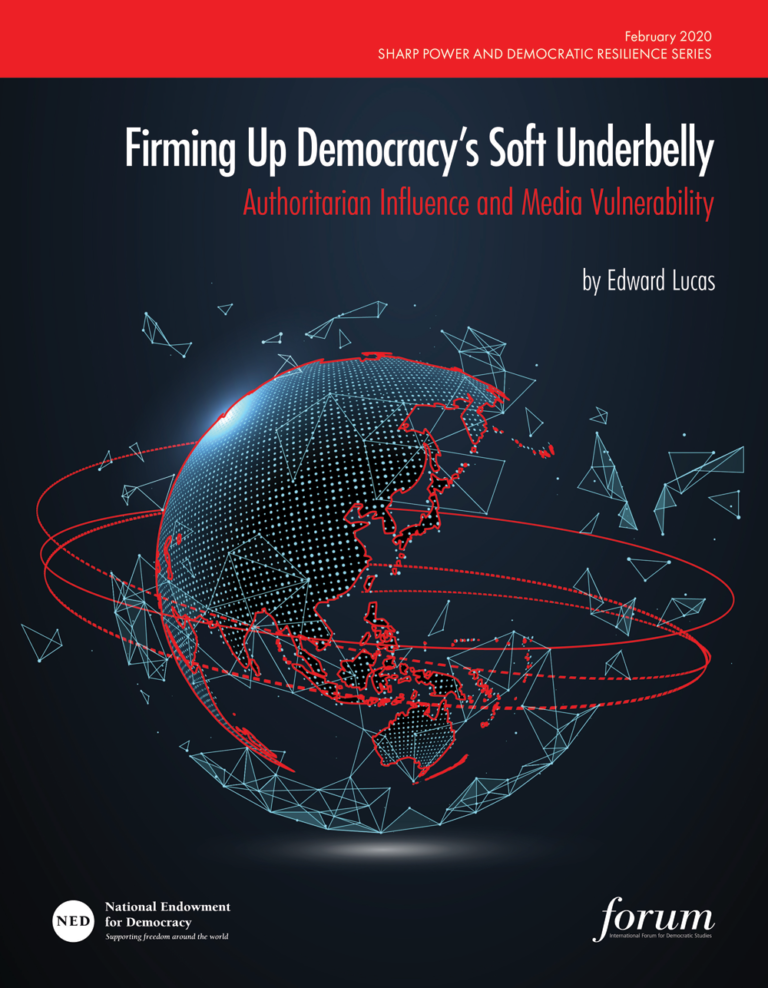‘Firm Up Democracy’s Soft Underbelly’: Autocrats winning war of ideas

Liberal democracies should accept “the bleak truth that we are losing the battle of ideas with authoritarian regimes, not because our ideas are weak, but because the battlefield is skewed against them,” says a leading commentator.
There are three main parts to Russian sharp power strategy in the media sphere, Lucas notes:
- The first is to reach media consumers through the Kremlin’s own state media outlets. The state-owned newspaper Rossiyskaya Gazeta produces a paid supplement, Russia Beyond, which is inserted into local papers in some 27 countries using 16 languages….
- The third part of the strategy is clandestine or indirect pressure. This can take the form of secret financing of competitors, disguised mergers and acquisitions, and the bribery of key staff…
Authoritarian diffusion acts as a countervailing force for democracy promotion efforts, argues Natasha Wunsch, Assistant Professor and Senior Researcher at ETH Zurich. The dual external influence makes domestic elites less vulnerable to either side, enabling them to ‘pick and choose’ from two different menus.
Remedies and deterrents are still available for democratic societies. But an effective response to authoritarian media influence requires an array of normative, legal, and practical changes, Lucas contends:
•
• A first step should be the creation of a charter of responsible practice with input from professional associations, trade unions, journalism schools, and industry bodies.
• A related effort encourages discretion in interactions with problematic media, to increase the social cost of engaging with state-owned propaganda channels.
• In the long term, media literacy education offers the best hope of strengthening the immune system of democratic media environments.
• Statutory regulation can help to improve the transparency of ownership, including state affiliation. Numerous private sector and nongovernmental initiatives are also developing systems for determining credibility and integrity in online news…..
“No single or simple solution will blunt the impact of sharp power on the information systems of the world’s democracies,” Lucas concludes. “But allowing commercial pressure alone to dictate information flows effectively sells political decision making to the highest bidder.” RTWT
@DCTwining adds: As the #CCP exports authoritarianism beyond its borders, #SriLanka risks falling victim. Smart analysis from @IRIGlobal‘s @DaveShullman for @VOANews.

